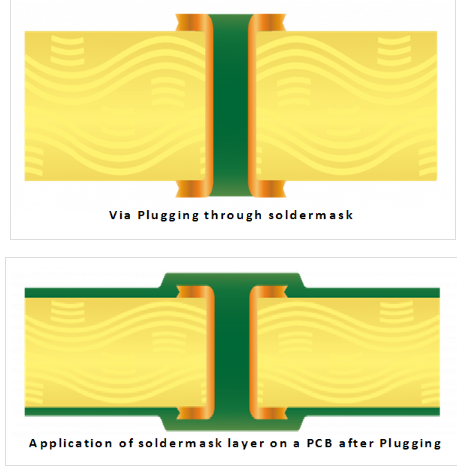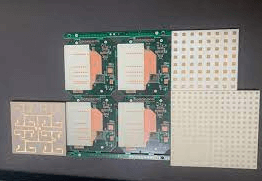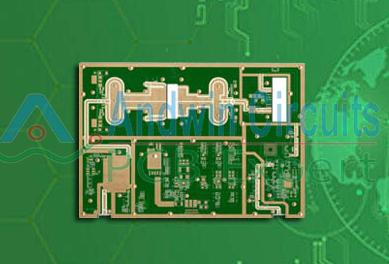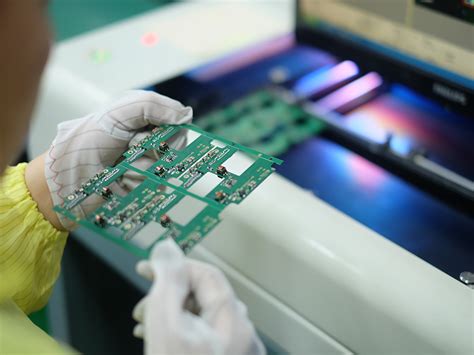Flex pcb manufacturer
Advantages Of Choosing A Flex PCB Manufacturer For Your Electronics Project
When embarking on an electronics project, selecting the right components and partners is crucial to the success of the endeavor. One such critical decision is choosing a flex PCB manufacturer. Flex PCBs, or flexible printed circuit boards, offer a range of advantages that make them an attractive option for various applications. Understanding these benefits can help you make an informed decision and ensure the optimal performance of your electronic devices.
To begin with, one of the primary advantages of opting for a flex PCB manufacturer is the inherent flexibility of the product.
Unlike traditional rigid PCBs, flex PCBs can be bent, twisted, and folded to fit into compact and irregularly shaped spaces. This flexibility allows for innovative design possibilities, enabling the creation of smaller, lighter, and more efficient electronic devices. As a result, industries such as consumer electronics, automotive, and medical devices increasingly rely on flex PCBs to meet the demands of modern technology.
Moreover, flex PCBs offer enhanced durability and reliability, which are essential for the longevity of electronic products.
The materials used in flex PCBs, such as polyimide, provide excellent resistance to heat, chemicals, and moisture. This resilience ensures that the circuits can withstand harsh environments and maintain their performance over time. Consequently, choosing a flex PCB manufacturer can lead to the development of products that are not only high-performing but also robust and long-lasting.
In addition to their physical advantages, flex PCBs contribute to improved electrical performance.
The design of flex PCBs allows for shorter and more direct routing of electrical paths, which reduces the risk of signal loss and interference. This characteristic is particularly beneficial in high-frequency applications where maintaining signal integrity is paramount. By selecting a flex PCB manufacturer, you can leverage these electrical benefits to enhance the overall functionality and efficiency of your electronic devices.
Furthermore, working with a specialized flex PCB manufacturer can streamline the production process and reduce costs.
These manufacturers possess the expertise and equipment necessary to produce high-quality flex PCBs efficiently. Their experience in handling the unique challenges associated with flexible circuits ensures that potential issues are addressed early in the design and manufacturing stages. This proactive approach minimizes the likelihood of costly revisions and delays, ultimately leading to a more cost-effective production cycle.
Another significant advantage of choosing a flex PCB manufacturer is the potential for customization.
Flex PCB manufacturers often offer a range of design options and can tailor their products to meet specific project requirements. This customization capability allows for the integration of additional features, such as embedded components or advanced interconnects, which can further enhance the performance and functionality of the final product. By collaborating with a flex PCB manufacturer, you can ensure that your electronic devices are precisely tailored to meet your unique needs.
In conclusion, the decision to partner with a flex PCB manufacturer for your electronics project can yield numerous benefits. From the flexibility and durability of the circuits to improved electrical performance and cost-effective production, flex PCBs offer a compelling solution for modern electronic applications. By understanding these advantages, you can make an informed choice that aligns with your project goals and contributes to the success of your electronic devices.
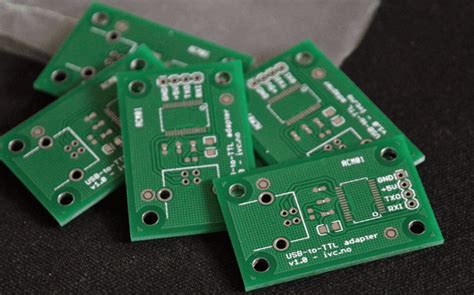
Key Considerations When Selecting A Flex PCB Manufacturer
When selecting a flex PCB manufacturer, several key considerations must be taken into account to ensure the success of your project. Flex PCBs, or flexible printed circuit boards, are increasingly popular in various industries due to their ability to bend and conform to different shapes, making them ideal for compact and complex electronic devices. As the demand for these versatile components grows, so does the importance of choosing a manufacturer that can meet specific requirements and deliver high-quality products.
First and foremost, the technical capabilities of the manufacturer should be thoroughly evaluated.
This includes their ability to produce flex PCBs with the desired specifications, such as layer count, material type, and thickness. Manufacturers with advanced technology and equipment are more likely to produce reliable and precise PCBs that meet stringent industry standards. Additionally, it is crucial to assess their experience in handling projects similar to yours, as this can significantly impact the quality and efficiency of the production process.
Another critical factor to consider is the manufacturer’s quality assurance processes.
A reputable flex PCB manufacturer should have robust quality control measures in place to ensure that each product meets the required specifications and performance standards. This often involves rigorous testing procedures, such as electrical testing, thermal cycling, and mechanical stress testing, to identify any potential defects or weaknesses. Furthermore, certifications such as ISO 9001 or IPC standards can serve as indicators of a manufacturer’s commitment to quality and reliability.
In addition to technical capabilities and quality assurance, the manufacturer’s ability to provide comprehensive support throughout the project lifecycle is essential.
This includes offering design assistance, prototyping services, and post-production support. A manufacturer that collaborates closely with clients during the design phase can help optimize the PCB layout for manufacturability and performance, potentially reducing costs and lead times. Moreover, access to prototyping services allows for the testing and refinement of designs before full-scale production, minimizing the risk of costly errors.
Cost considerations also play a significant role in the selection process.
While it may be tempting to choose a manufacturer based solely on price, it is important to weigh the cost against the quality and reliability of the products and services offered. A lower initial cost may result in higher expenses down the line if the PCBs fail to perform as expected or require frequent replacements. Therefore, a comprehensive cost-benefit analysis should be conducted to determine the best value for your investment.
Furthermore, the manufacturer’s production capacity and lead times should align with your project requirements.
Delays in production can have a cascading effect on the entire supply chain, potentially leading to missed deadlines and increased costs. It is advisable to select a manufacturer with a proven track record of meeting delivery schedules and the flexibility to accommodate changes in demand.
Lastly, consider the manufacturer’s reputation and customer feedback.
Reviews and testimonials from previous clients can provide valuable insights into the manufacturer’s reliability, customer service, and overall performance. Engaging with a manufacturer that has a strong reputation in the industry can offer peace of mind and confidence in the quality of the final product.
In conclusion, selecting the right flex PCB manufacturer involves a careful evaluation of their technical capabilities, quality assurance processes, support services, cost-effectiveness, production capacity, and reputation. By considering these key factors, you can make an informed decision that aligns with your project goals and ensures the successful implementation of your flex PCB applications.
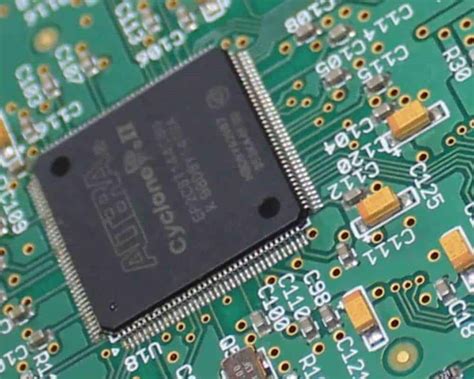
Innovations In Flex PCB Manufacturing: What To Expect In The Future
The field of flexible printed circuit boards (flex PCBs) has witnessed significant advancements over the past few decades, driven by the increasing demand for compact, lightweight, and versatile electronic devices. As technology continues to evolve, the future of flex PCB manufacturing promises even more innovative developments that will further enhance their functionality and application.
One of the most notable trends in this domain is the integration of advanced materials, which are set to revolutionize the way flex PCBs are designed and utilized.
For instance, the incorporation of conductive inks and substrates that offer superior flexibility and durability is expected to become more prevalent. These materials not only improve the performance of flex PCBs but also enable the creation of more complex and intricate designs, thereby expanding their potential applications across various industries.
Moreover, the advent of additive manufacturing techniques, such as 3D printing, is poised to transform the flex PCB manufacturing landscape.
By allowing for the precise deposition of materials layer by layer, these techniques facilitate the production of highly customized and intricate circuit designs that were previously unattainable with traditional manufacturing methods. This shift towards additive manufacturing not only enhances the design flexibility of flex PCBs but also reduces production costs and lead times, making it an attractive option for manufacturers seeking to optimize their operations.
In addition to material and manufacturing innovations, the future of flex PCB manufacturing is also likely to be shaped by advancements in automation and artificial intelligence (AI).
As manufacturers strive to improve efficiency and reduce human error, the integration of AI-driven systems for design, testing, and quality control is becoming increasingly important. These systems can analyze vast amounts of data to identify patterns and anomalies, enabling manufacturers to optimize their processes and ensure the highest quality standards. Furthermore, automation technologies such as robotic assembly and inspection are expected to play a crucial role in streamlining production workflows and minimizing labor costs.
Another key area of innovation in flex PCB manufacturing is the development of environmentally sustainable practices.
As the electronics industry faces growing pressure to reduce its environmental impact, manufacturers are exploring ways to minimize waste and energy consumption throughout the production process. This includes the adoption of eco-friendly materials and the implementation of recycling and waste management programs. By prioritizing sustainability, flex PCB manufacturers can not only meet regulatory requirements but also appeal to environmentally conscious consumers and businesses.
Looking ahead, the increasing convergence of flex PCBs with emerging technologies such as the Internet of Things (IoT) and wearable electronics is expected to drive further innovation in the field.
As these technologies continue to gain traction, the demand for highly reliable and efficient flex PCBs will only grow. Manufacturers will need to adapt to these changing requirements by developing new solutions that address the unique challenges posed by these applications, such as the need for enhanced signal integrity and power management.
In conclusion, the future of flex PCB manufacturing is set to be characterized by a host of exciting innovations that will redefine the capabilities and applications of these versatile components. By embracing advanced materials, additive manufacturing, automation, sustainability, and emerging technologies, manufacturers can position themselves at the forefront of this rapidly evolving industry. As a result, they will be well-equipped to meet the demands of an increasingly interconnected and technology-driven world.
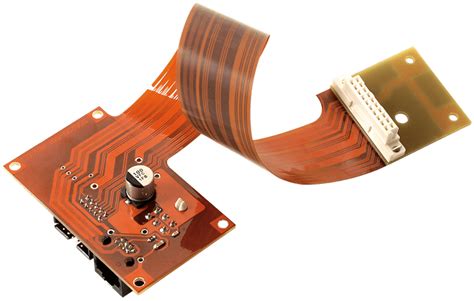
How To Ensure Quality And Reliability With Your Flex PCB Manufacturer
When selecting a flex PCB manufacturer, ensuring quality and reliability is paramount to the success of your electronic products. The process begins with a thorough evaluation of potential manufacturers, focusing on their experience and expertise in producing flexible printed circuit boards. A manufacturer with a proven track record in the industry is more likely to deliver high-quality products that meet your specifications. Therefore, it is essential to research their history, client testimonials, and case studies to gauge their capability and reliability.
Moreover, the quality of materials used in the production of flex PCBs significantly impacts the final product’s performance.
It is crucial to verify that the manufacturer uses high-grade materials that comply with industry standards. This includes ensuring that the copper, polyimide, and adhesive materials are sourced from reputable suppliers. By doing so, you can minimize the risk of defects and enhance the durability of the PCBs. Additionally, inquire about the manufacturer’s quality control processes. A robust quality assurance system, including regular inspections and testing at various production stages, is vital to identify and rectify any issues before the products reach the market.
Furthermore, the technological capabilities of the manufacturer play a critical role in ensuring the reliability of flex PCBs.
Advanced manufacturing technologies, such as automated optical inspection (AOI) and X-ray inspection, can detect minute defects that might otherwise go unnoticed. These technologies not only improve the precision of the manufacturing process but also reduce the likelihood of errors. Therefore, partnering with a manufacturer that invests in state-of-the-art equipment and technology is a prudent decision.
In addition to technological prowess, the manufacturer’s adherence to industry standards and certifications is a key indicator of their commitment to quality.
Certifications such as ISO 9001, IPC standards, and UL listings demonstrate that the manufacturer follows stringent quality management practices. These certifications provide assurance that the manufacturer is dedicated to maintaining high standards throughout the production process. Consequently, it is advisable to verify the manufacturer’s certifications and ensure they are up-to-date.
Communication is another critical factor in ensuring quality and reliability.
Establishing clear and open lines of communication with your manufacturer can prevent misunderstandings and ensure that your requirements are accurately conveyed. Regular updates and feedback during the production process can help address any issues promptly and maintain the quality of the final product. Therefore, choosing a manufacturer that values transparent communication and is responsive to your needs is essential.
Moreover, consider the manufacturer’s ability to provide technical support and after-sales service.
A reliable manufacturer should offer comprehensive support, including design assistance, troubleshooting, and repair services. This support is invaluable in addressing any challenges that may arise during the product’s lifecycle and ensures that your flex PCBs continue to perform optimally.
Finally, evaluating the manufacturer’s production capacity and lead times is crucial to ensure they can meet your demand without compromising quality.
A manufacturer with sufficient capacity and efficient processes can deliver products on time, allowing you to maintain your production schedules and meet market demands.
In conclusion, ensuring quality and reliability with your flex PCB manufacturer involves a multifaceted approach. By carefully evaluating their experience, materials, technology, certifications, communication practices, technical support, and production capacity, you can select a manufacturer that aligns with your quality expectations and business needs. This comprehensive evaluation will ultimately contribute to the success and reliability of your electronic products.

